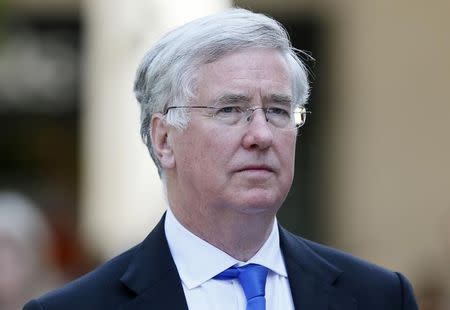Britain extends commitment to NATO reassurance in Eastern Europe

LONDON (Reuters) - Britain will boost its commitment to NATO reassurance efforts in Eastern Europe by extending the length of time its troops and fighter jets are involved, Defence Minister Michael Fallon said on Sunday. The military alliance has been beefing up its defences in the region since Russia's intervention in Ukraine last year, which has led to nervousness in NATO members Poland and the Baltic states of Lithuania, Latvia and Estonia that they could be next. "We have to continue to strengthen NATO," Fallon told the BBC's Andrew Marr Show on Sunday, saying that Russian President Vladimir Putin was "sabre rattling". "It is very important we keep sending Putin this message that we are determined in our commitment to the collective defence of NATO." Plans include a new "spearhead" rapid reaction force that could be sent to a hot spot in as little as two days. Fallon said Britain would extend is contribution to this force. As well as providing 1,000 troops next year and 3,000 the year after, it will now contribute a battle group of around 1,000 soldiers every year until 2021. He also said four British Typhoon fighter jets, which have been carrying out air patrols over the Baltic States, would continue that role next year. The British government has repeatedly come under pressure from lawmakers both in its own Conservatives and the opposition Labour Party, to commit to maintaining military spending at NATO's target of 2 percent of gross domestic product. Fallon has declined to commit beyond the current financial year, saying it will depend on the outcome of a defence spending review which is under way. The Sunday Telegraph, citing military insiders, reported that as part of that review defence companies were preparing to submit plans for a 2 billion pound deal to replace Britain's Nimrod maritime patrol aircraft, which were scrapped during the last round of defence cuts in 2010. (Reporting by Kylie MacLellan; Editing by Hugh Lawson)

